Hyewon Bae
On Exact Inversion of DPM-Solvers
Nov 30, 2023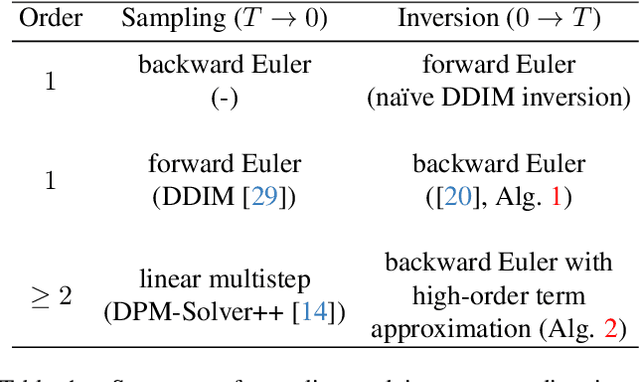
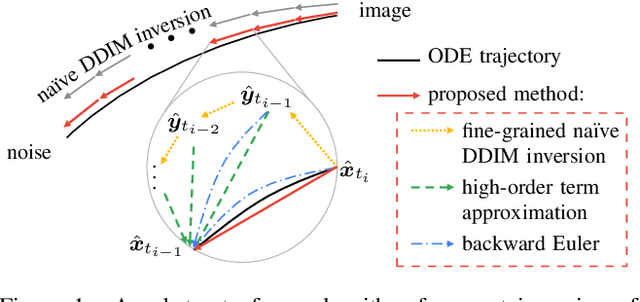
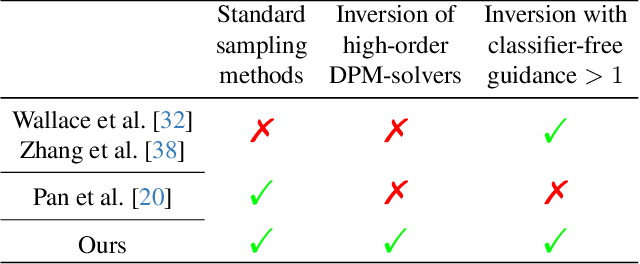
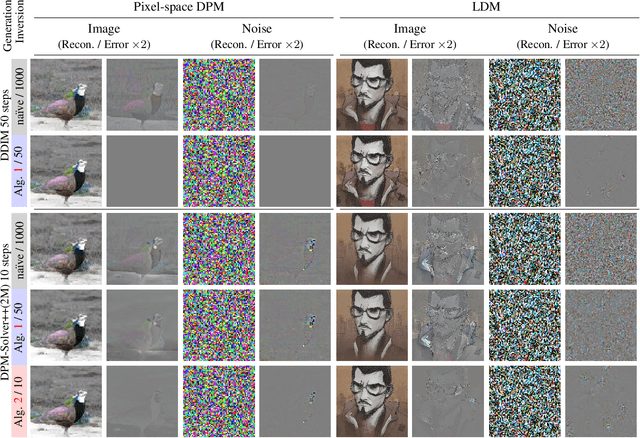
Abstract:Diffusion probabilistic models (DPMs) are a key component in modern generative models. DPM-solvers have achieved reduced latency and enhanced quality significantly, but have posed challenges to find the exact inverse (i.e., finding the initial noise from the given image). Here we investigate the exact inversions for DPM-solvers and propose algorithms to perform them when samples are generated by the first-order as well as higher-order DPM-solvers. For each explicit denoising step in DPM-solvers, we formulated the inversions using implicit methods such as gradient descent or forward step method to ensure the robustness to large classifier-free guidance unlike the prior approach using fixed-point iteration. Experimental results demonstrated that our proposed exact inversion methods significantly reduced the error of both image and noise reconstructions, greatly enhanced the ability to distinguish invisible watermarks and well prevented unintended background changes consistently during image editing. Project page: \url{https://smhongok.github.io/inv-dpm.html}.
Korean Tokenization for Beam Search Rescoring in Speech Recognition
Mar 28, 2022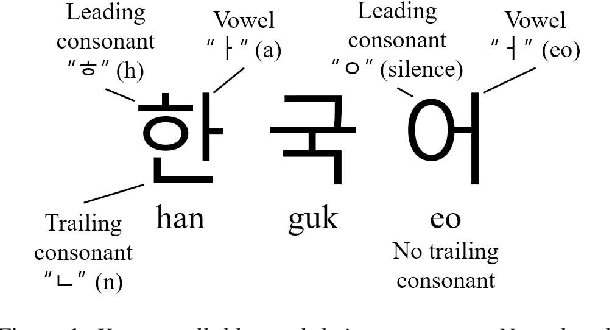
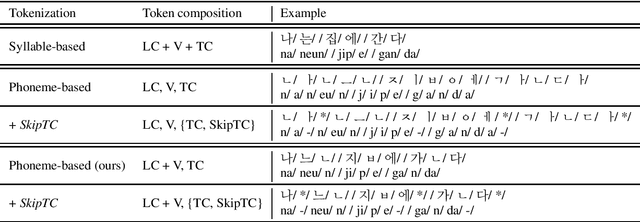
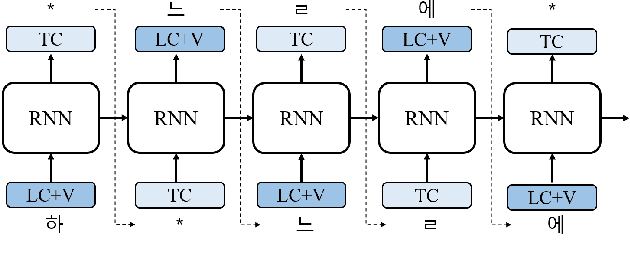
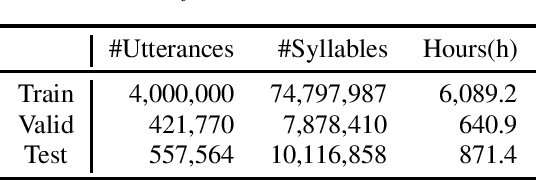
Abstract:The performance of automatic speech recognition (ASR) models can be greatly improved by proper beam-search decoding with external language model (LM). There has been an increasing interest in Korean speech recognition, but not many studies have been focused on the decoding procedure. In this paper, we propose a Korean tokenization method for neural network-based LM used for Korean ASR. Although the common approach is to use the same tokenization method for external LM as the ASR model, we show that it may not be the best choice for Korean. We propose a new tokenization method that inserts a special token, SkipTC, when there is no trailing consonant in a Korean syllable. By utilizing the proposed SkipTC token, the input sequence for LM becomes very regularly patterned so that the LM can better learn the linguistic characteristics. Our experiments show that the proposed approach achieves a lower word error rate compared to the same LM model without SkipTC. In addition, we are the first to report the ASR performance for the recently introduced large-scale 7,600h Korean speech dataset.
 Add to Chrome
Add to Chrome Add to Firefox
Add to Firefox Add to Edge
Add to Edge